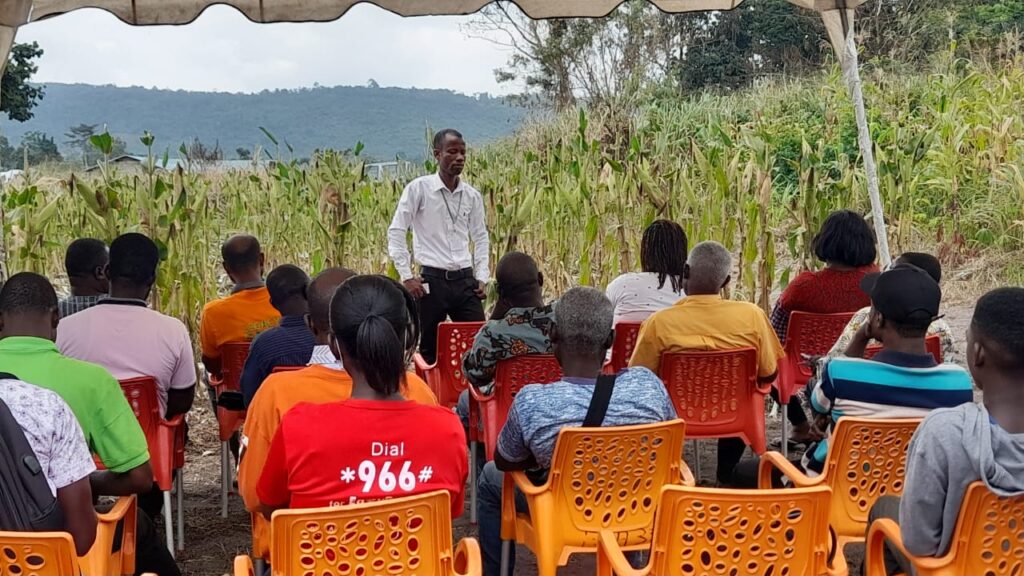Otareso farmers in the Akuapem North district have been introduced to a new maize seed variety by the Legacy Crop Improvement Centre (LCIC), a local organisation that specialises in seed production, to increase yield and productivity.
The maize seedling Legon Abro, also known as Legacy ‘2’, has been demonstrated to have higher yields, better resistance to armyworm, and a maturity period of 90 days.
This was announced at the third Seed Variety Show, which was held at Otareso in the Akuapem North district, as part of the centre’s outreach programme to educate farmers on best farming practices and seed varieties for improved production.
LCIC operates on a 200-acre farm with an irrigation facility for seed production. It also has a 50-tonne seed bank with a cold facility for storing large amounts of seeds for extended periods to avoid seed deterioration.
Dr Amos Rutherford Azinu stated that improved seeds for high yields were the most certain way of addressing food shortages and insecurity in Sub-Saharan Africa.
He said the low production of staple foods such as maize had contributed to the high cost of food, saying: “we don’t necessarily have a food shortage but because of low yields, people want to make a profit on the little in the system.”
The Legacy ‘2’ is a researched product funded by the Alliance for Green Revolution Africa (AGRA), and it takes 90 days to harvest, as opposed to 120 days for the obatanpa.
Dr Azinu stated that the centre was positioning itself to provide a wide range of services for all farming needs to become a one-stop shop for agricultural activities in the area.
The LCIC has produced and marketed basic seeds in Ghana, Mali, Burkina Faso and Togo, and currently plays a leading role in the commercialization of two high-yielding hybrid maize varieties (9-11 t/ha) registered by the West Africa Centre for Crop Improvement (WACCI) University of Ghana.
Mrs Regina Richardson, AGRA’s Programmes Officer, described the new Legacy ‘2’ maize seed as a significant milestone in increasing maize production.
She stated that on average, a farmer could harvest approximately 90 to 1000-kilo bags of maize per hectare with the legacy 2 seedlings accounting for 400 per cent of the current yield.
“That is a significant improvement in the lives of small-holder farmers, or lifting them from their current status to where they can have increased incomes and better educate their children.”

